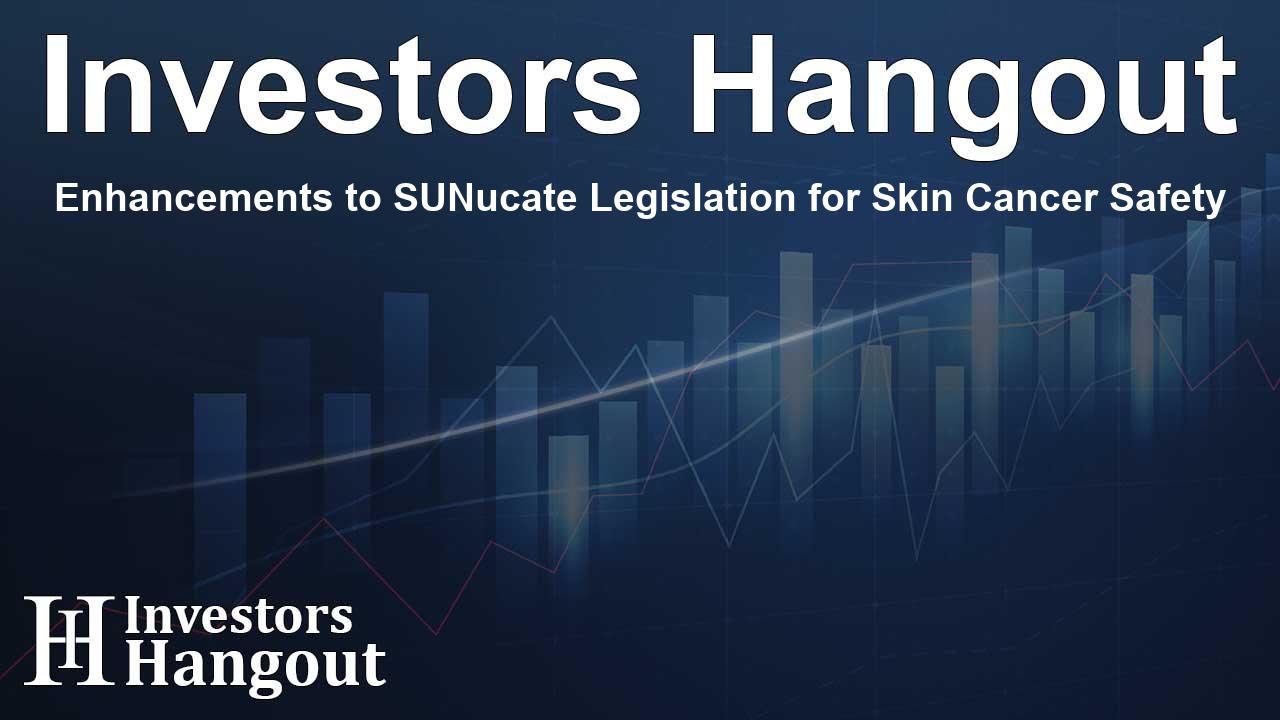Enhancements to SUNucate Legislation for Skin Cancer Safety

ASDSA Expands Initiatives for Skin Cancer Prevention
The American Society for Dermatologic Surgery Association (ASDSA) recently made significant enhancements to its SUNucate model legislation, which aims to bolster skin cancer prevention initiatives. The Board of Directors approved an optional addition to encourage states to exempt sunscreen from sales tax, thereby making it more accessible. In addition, sunglasses have been highlighted as a valuable form of sun-protective clothing. These initiatives reflect ASDSA's commitment to promoting safe sun practices and improving public health outcomes.
The Importance of Skin Cancer Prevention
Skin cancer remains the most prevalent cancer, imposing heavy costs for treatment and creating substantial challenges for affected individuals and healthcare systems. Most skin cancer cases can be prevented through reduced exposure to harmful ultraviolet (UV) rays and by adopting proactive protective measures. By allowing sunscreen to be purchased without the burden of sales tax, ASDSA aims to encourage greater community engagement in skin safety practices, potentially saving lives and minimizing healthcare expenditures.
Sun Protective Clothing: A Critical Component
In addition to sunscreen, the integration of sun protective clothing, particularly sunglasses, is crucial. Sunglasses not only protect the eyes from harmful UV rays but also mitigate the risk of cataracts and skin damage around the eyes. As part of a comprehensive approach to sun safety, these accessories are essential for both children and adults, ensuring that everyone can enjoy outdoor activities while minimizing health risks.
Advocacy and Legislative Efforts
Dermatologic surgeons witness the severe consequences of skin cancer on a daily basis. M. Laurin Council, MD, MBA, President of ASDSA, emphasized the organization’s initiative to revise the SUNucate model. “By permitting states to waive sales tax on sunscreen products, we can enhance accessibility to this crucial health resource,” Council stated, urging lawmakers to prioritize preventive measures in their health agendas.
Moreover, the bipartisan leaders of the Congressional Skin Cancer Caucus, amongst whom is ASDSA's own Representative John Joyce, MD, have put forth legislation aimed at streamlining FDA reviews for new nonprescription sunscreen ingredients. The proposed H.R. 3686 and its Senate counterpart, the SAFE Sunscreen Standards Act, represent significant milestones in the fight against skin cancer, fostering the development of new products that can safeguard against this disease.
The Need for Comprehensive Access
The impetus for the SUNucate initiative arose when dermatologists expressed concern regarding restrictions that prevented students from carrying sunscreen at school. Classified as over-the-counter drugs under federal regulations, sunscreens were often banned, prompting an urgent need for legislative relief. Launched in 2016, the SUNucate initiative was designed not only to dismantle barriers to sunscreen usage within school environments but also to cultivate a culture of sun safety among students. Currently, 30 jurisdictions have adopted the SUNucate model, and notable legislative efforts are underway in various states to advance this cause further.
Conclusion: A Community Approach to Sun Safety
ASDSA continues to advocate for policies that enhance skin cancer prevention and encourages community investment in sun safety measures. By promoting easier access to sunscreen and protective accessories, we embark on a critical journey towards reducing skin cancer instances and fostering public health. The collaboration among dermatologic professionals, lawmakers, and community members remains pivotal in achieving these goals.
Frequently Asked Questions
What does the updated SUNucate legislation aim to achieve?
The updated SUNucate legislation seeks to improve access to sunscreen by allowing states to exempt it from sales tax, along with promoting sunglasses as essential sun protection.
Why is skin cancer considered a major health issue?
Skin cancer is the most common form of cancer, leading to significant treatment costs and health complications, making prevention efforts all the more critical.
How can sunglasses help in preventing skin cancer?
Sunglasses protect the eyes from harmful UV rays, which can lead to cataracts and skin damage around the eyes, important in a comprehensive sun safety strategy.
What has been done to increase awareness around the need for sunscreen in schools?
The SUNucate initiative was created to address limitations preventing students from bringing sunscreen to school, aiming to integrate sun safety into educational institutions.
How can the community support skin cancer prevention initiatives?
Community support can include advocating for policy changes, participating in sun safety programs, and promoting awareness around proper sunscreen use and sun protection strategies.
About The Author
Contact Addison Perry privately here. Or send an email with ATTN: Addison Perry as the subject to contact@investorshangout.com.
About Investors Hangout
Investors Hangout is a leading online stock forum for financial discussion and learning, offering a wide range of free tools and resources. It draws in traders of all levels, who exchange market knowledge, investigate trading tactics, and keep an eye on industry developments in real time. Featuring financial articles, stock message boards, quotes, charts, company profiles, and live news updates. Through cooperative learning and a wealth of informational resources, it helps users from novices creating their first portfolios to experts honing their techniques. Join Investors Hangout today: https://investorshangout.com/
The content of this article is based on factual, publicly available information and does not represent legal, financial, or investment advice. Investors Hangout does not offer financial advice, and the author is not a licensed financial advisor. Consult a qualified advisor before making any financial or investment decisions based on this article. This article should not be considered advice to purchase, sell, or hold any securities or other investments. If any of the material provided here is inaccurate, please contact us for corrections.
